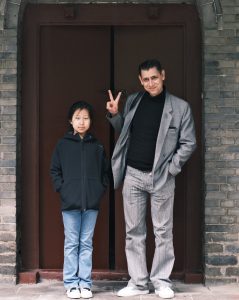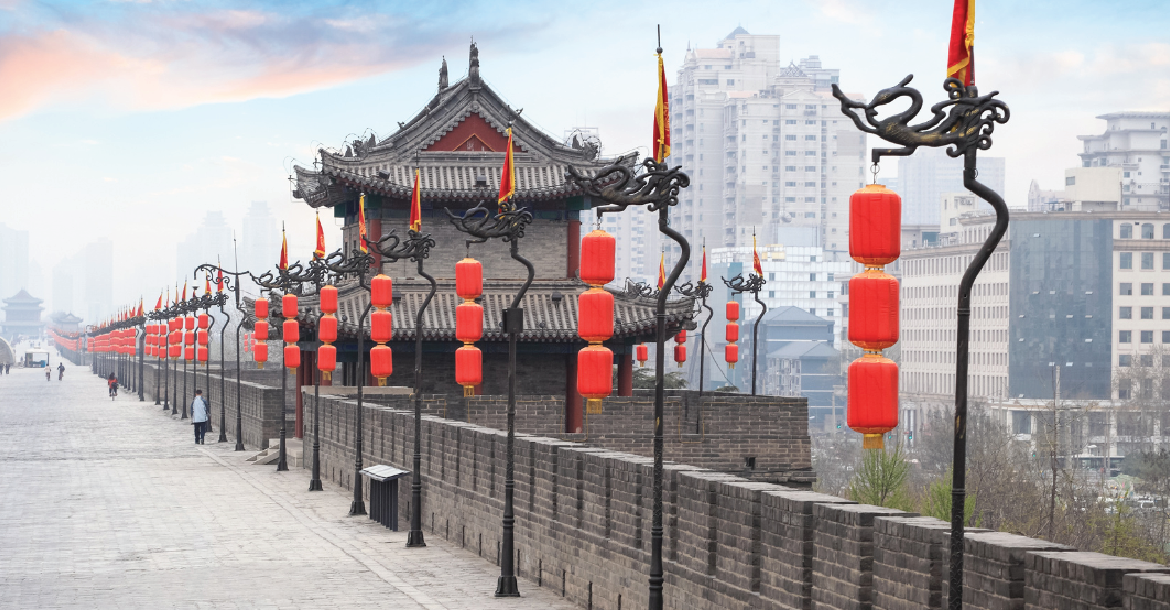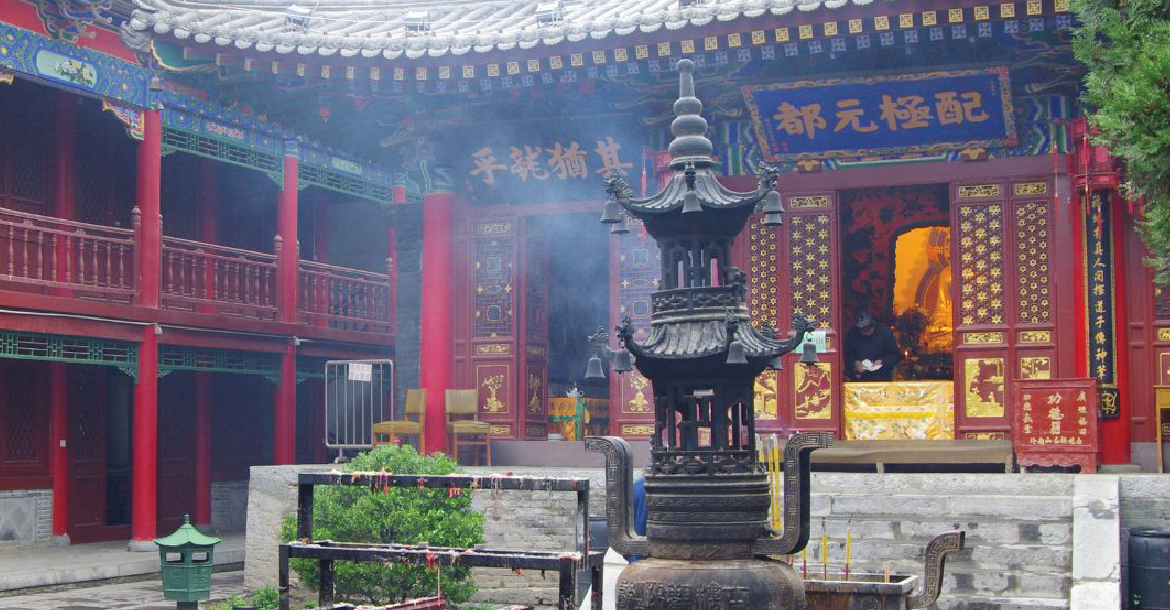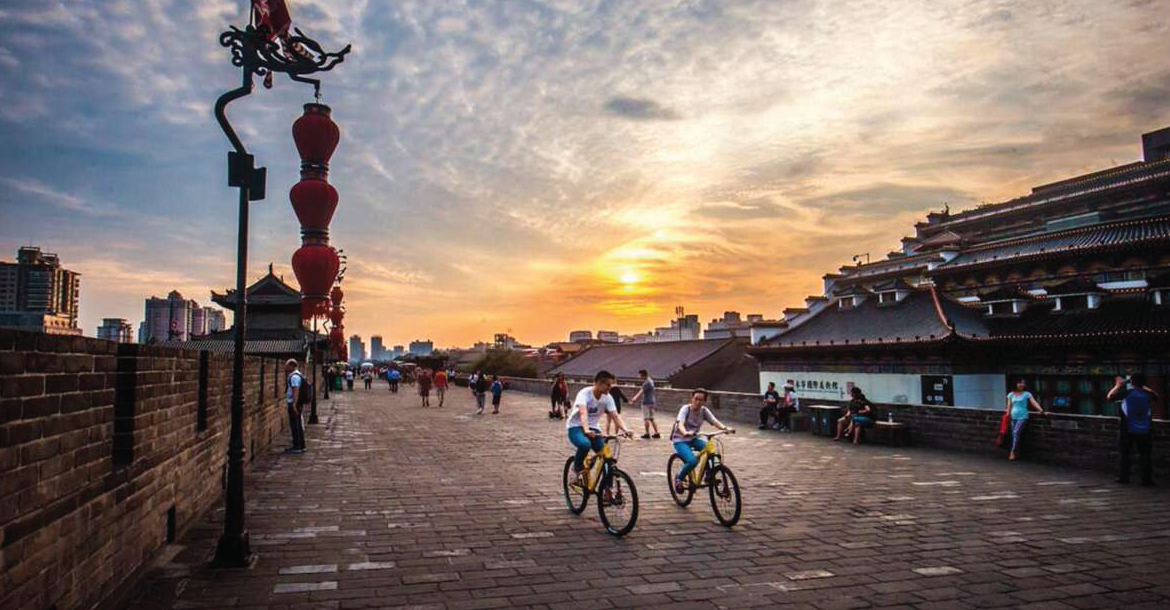Combat Corrosion in China
Overview
| Location | Xi’an, China |
| Arrival Date | May 11, 2025 |
| Teaching Dates | May 12 – June 6, 2025 (4 weeks) |
| 3 Credits | ENGR 498 (Special Topics: Corrosion and Corrosion Prevention Methods). Science students would fit this course into their Upper Level Electives |
| Eligibility | Open to Science and Engineering students who are currently in 2nd, 3rd or 4th year. Graduate students are also welcome to apply. |
| Approximate Program Fee | $3,000-$3,500 |
Info Session Recording
To learn more about this program, please view the Recording here
——————————————————————————-
Application
On the application, search “UBCO China GSP” to find the application for the China program.
Deadline: Accepting applications on an ongoing basis
——————————————————————————-
Program Information
ABOUT THE PROGRAM
This course provides a comprehensive overview of corrosion, exploring the fundamental principles of electrochemical reactions that lead to material degradation. Students will gain an in-depth understanding of different types of corrosion, including uniform, galvanic, pitting, and stress corrosion cracking, and how these affect various materials. The course will also cover key factors influencing corrosion, such as environmental conditions, material properties, and design considerations. Emphasis will be placed on modern corrosion prevention methods, including coatings, cathodic protection, material selection, and environmental controls. Through a combination of lectures, case studies, and practical applications, students will develop the skills necessary to assess and implement effective corrosion mitigation strategies in industrial and engineering contexts.
ELIGIBILITY AND PREREQUISITeS
- Open to current 2nd, 3rd, and 4th year Science and Engineering students (Graduate students may also benefit based on their research focus)
- No background in Engineering is required, this course is a great fit for many Science disciplines
COURSEWORK
ENGR 498 (3) Special Topics in Engineering: Corrosion and Corrosion Prevention Methods (3 credits)
This course is designed for 3rd and 4th year science and engineering students seeking to develop a comprehensive understanding of corrosion and corrosion control principles. It covers the fundamental mechanisms of corrosion, the different forms of corrosion, the various methods of corrosion prevention including but not limited to coatings, inhibitors, cathodic and anodic protections, and their practical application in the selection of construction materials and the protection of engineering systems. By the end of the course, students will gain valuable insights into the challenges posed by corrosion in different industries and the strategies employed to mitigate its effects, ensuring the longevity and reliability of engineering infrastructures such as pipelines, bridges, offshore facilities, etc.
academics
UBC Okanagan Students
Science students = Upper Level Elective
Civil, Mechanical, & Manufacturing Engineering students @ UBCO = technical elective
Electrical Engineering students @ UBCO = alternative technical elective.
Computer Engineering program @ UBCO = does not fit with degree requirements.
Please work with an Engineering Advisor if you have any questions. UBC Okanagan Engineering Advising
UBC Vancouver students
The Course Syllabus is linked above, please work with your Advisor to determine how this fits into your degree. UBC Vancouver Engineering Advising.
General Timeline
Teaching Dates: May 12 – June 6, 2025
Arrival: May 11, 2025
Weeks one to four:
This program will be located in Xi’an, the majestic capital of Shaanxi Province. It is a city steeped in history, having served as the capital of 13 dynasties over more than 3,000 years. Revered as ‘the birthplace of Chinese civilization,’ Xi’an was a vital stop along the ancient Silk Road, where cultures and cuisines converged, enriching the city with an unparalleled diversity that has only deepened with time. Amidst world-renowned historical treasures such as the awe-inspiring Terracotta Warriors and the ancient, towering City Wall, Xi’an pulses with a vibrant blend of culinary delights, from the delicate flavours of Cantonese dishes to the fiery allure of Sichuan spices. The city’s artisans, steeped in tradition, craft some of China’s finest products, adding to the charm.
Yet Xi’an is not simply a relic of the past. It stands proudly as one of China’s largest and most developed cities, where history and modernity intertwine seamlessly. The city offers every contemporary convenience, ensuring that travellers seeking luxury will find their desires met. With its rich heritage and cosmopolitan flair, Xi’an presents an unrivalled experience where timeless elegance meets modern sophistication. Here are some of the finest luxury hotels in Xi’an, ready to offer you a stay that blends history with indulgence.
To learn more about Xi’an – please watch this 4 minute video
Program Fees
Program fees: $3,000-$3,500. The final program fee depends on the number of students in the program.
| Included in program fee | Not included in program fee |
|
|
AWARD
Every student accepted into this program will receive a $1,000 Global Seminar Award. This will be distributed to students in June 2025.
Program Director Bio

2023 Documentary film
Dr. Taheri earned his Ph.D. in Mechanical Engineering from the University of Saskatchewan in 2002. Between 2003 and 2006, he gained valuable industry experience and conducted advanced research as a Postdoctoral Fellow (PDF) in partnership with IPSCO, Canada. His work during this period bridged academic research with practical, industrial applications.
In 2006, Dr. Taheri joined the University of British Columbia Okanagan (UBCO), where he currently serves as a Professor of Teaching in the School of Engineering. Over the course of nearly two decades at UBCO, he has developed and delivered more than 100 high-calibre courses, both locally and internationally, impacting over 20,000 students. His commitment to innovative teaching practices and dedication to student success have earned him a reputation for excellence in engineering education.
Dr. Taheri has also cultivated long-standing collaborations with prestigious research institutions in China, contributing to joint research efforts and academic exchange. Building on these connections, he is excited to lead UBC students to China in the Summer of 2025 for a unique Global Seminar. This program offers students a unique opportunity to engage with China’s vibrant academic and cultural landscapes, deepening their learning through hands-on experience.
Dr. Taheri looks forward to facilitating meaningful cross-cultural exchanges and sharing his expertise with the next generation of global engineers.
Read more about Dr. Ray Taheri: Encouraging empathetic engineers who will make a positive impact on the world



